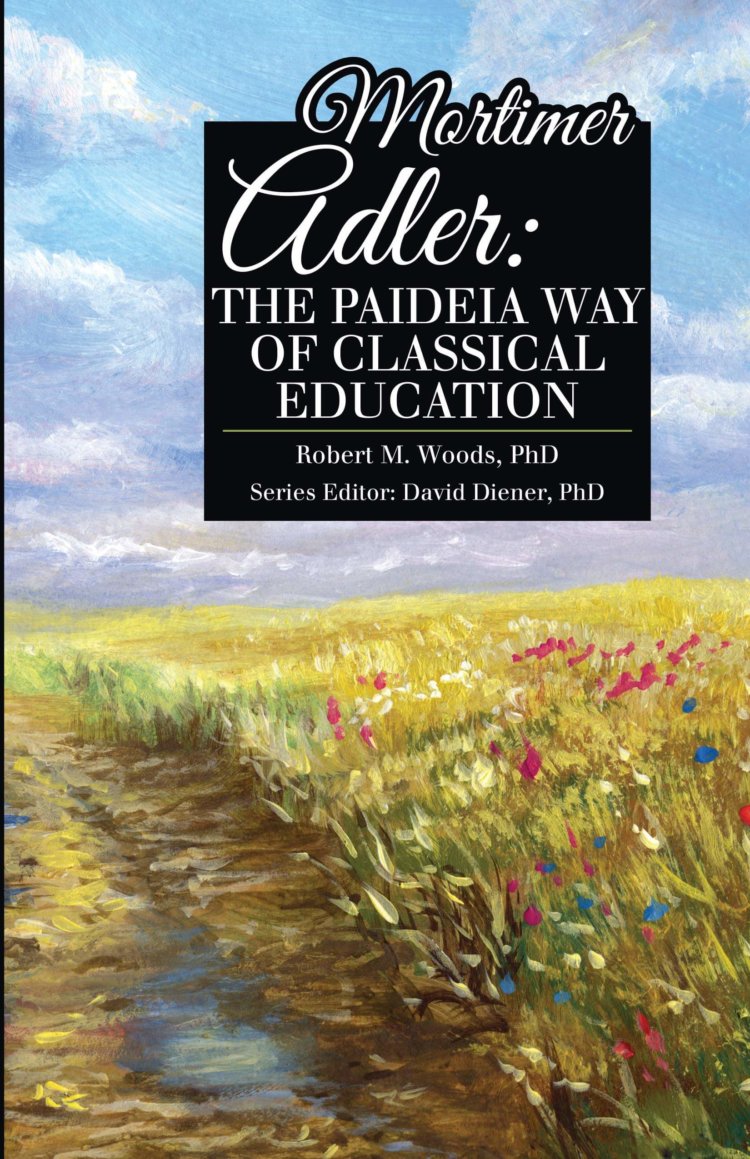Mortimer Adler and The Context of an Educational Philosophy

Mortimer Adler: The Paideia Way of Classical Education. Robert Woods. Classical Academic Press, 2019.
It all comes down to wisdom really. In Nicomachean Ethics, Aristotle says, “Now it is thought to be the mark of a man of practical wisdom to be able to deliberate well about what is good and expedient for himself . . . about what sort of things conduce to the good life in general” (VI, 1140a–1140b) because “it is impossible to be practically wise without being good” (1144a, 36–37). To be fully human, to have a whole and full education, is to know what is good.
Dr. Robert Woods is the best of advocates for this ideal. He writes, “A humanities education alone does not make one more humane, but the best liberal arts education compliments proper moral and civic formation.” That hope-filled approach is what makes this volume an inspiring read much like Karen Glass’s biography of Charlotte Mason. Dr. Woods’s book embodies the life and educational philosophy of one reformer in Mortimer Adler: The Paideia Way of Classical Education. This slim volume is one of the evolving series by Classical Academic Press, Giants in the History of Education, which already includes the likes of Milton, Plato, and C.S. Lewis.
Though Dr. Woods includes a brief biography of Adler, his focus remains on Adler’s work and philosophy, that of making the great books and the great ideas “more accessible to the average citizen.” Like Aristotle, Adler knew exploring the good in man required “a humble wisdom.”
Dr. Woods then traces Adler’s work. Most readers know Adler from How To Read a Book, but few know of his book How to Speak, How to Listen. Speaking and listening are essential to life and learning, and they are skills that can be taught. Dr. Woods calls them the lost liberal arts. Adler’s next project was to create an encyclopedia that was more than facts and knowledge. It had to also examine the nature of truth because “Wisdom is generally acknowledged to be the highest good of the human mind.” But it was not for “cultivated persons” alone. One of the bracing ideals Dr. Woods repeats is that liberal education really is for all students of every level of learning. It’s all about the approach to wisdom because each of us has potential.
This is The Paideia Proposal of 1982 where Adler advocated a “rich engagement with great books and artistic masterpieces for all students without tracking.” It was to be, and still can be, the best education for the best. Dr. Woods describes it here—“For Adler, education is an embodied and highly engaging process whereby people grow into a fuller expression of what it means to be a human being.”
And this is where the practical application begins. Dr. Woods’s passion in this section is as liberal as his topic. Reform begins with teachers who are “on the way to becoming educated persons.” Humility is key. With hope-filled prose, Dr. Woods summarizes Adler’s premise that like the process of discovery, all genuine learning is active. A common curriculum rooted in the great ideas allows all students to join in learning together. An active teacher and an active student become classrooms “alive with conversation and learning, considering that learning is about students.”
In the last portion of the book, Dr. Woods includes the details of The Paideia Proposal’s three-column structure. Simple appendices chart the columns and include a sample class schedule using this approach. First, formal didactic instruction improves the mind “by the acquisition of organized knowledge” through a short engaging lecture. Second, in academic coaching students are taught skills from listening to observing to calculating. They are to observe and imitate the teacher before receiving critical feedback. Practice is required but as Dr. Woods explains, “Knowing how to do something and understanding what one is doing are very different.” Finally the third column culminates in The Socratic Seminar. Here, “the interrogative or discussion method of teaching . . . stimulates the imagination and the intellect by awakening the creative and inquisitive powers. In no other way can children’s understanding of what they know be improved, and their appreciation of cultural objects be enhanced.”
Though intended to be informative, most chapters of Mortimer Adler: The Paideia Way of Classical Education are akin to an educator’s devotional. The discussion questions at the end of the book are perfect for reflection and for continuing teacher education. I was left inspired to be a more thoughtful and focused Christian educator, one who embraces active learners and practices active teaching. Having sat under Dr. Robert Woods in graduate school, I can truly say he epitomizes the ideal that “All people should be educated fully to full humanity.”
This was originally published with the same title in The Imaginative Conservative on November 28, 2019.




